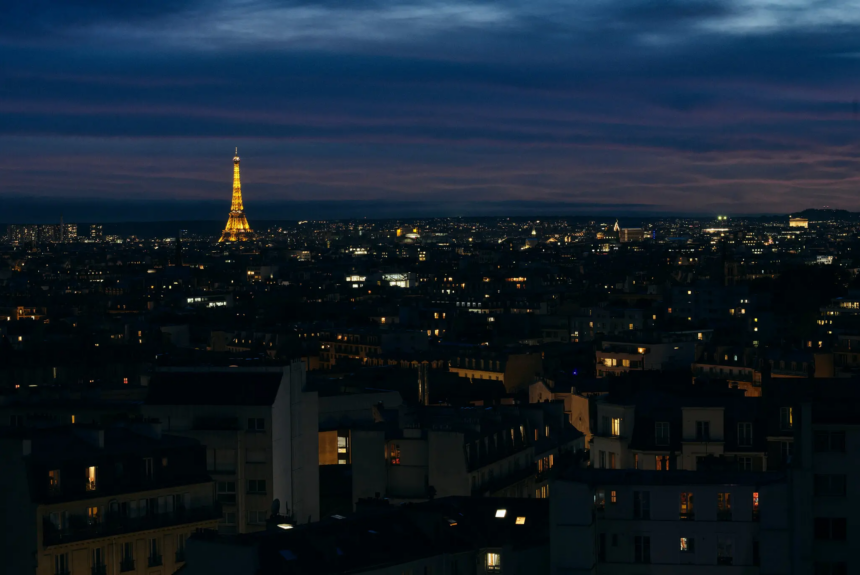Christmas is coming. In Europe, that means, Christmas markets, skiing in the Alps, and colder temperatures. As those temperatures drop, things may be worse than usual in many areas this season, because European Union nations are boycotting energy from Russia after its invasion of Ukraine. That means less natural gas is available to run factories and heat homes. The sanctions make geopolitical sense, and they seem to be cranking up the pressure on Moscow, but Europe’s energy response is fraught with contradictory actions.
>>>READ: How Europe Can Kickstart a Reliable Energy Future
Germany is going to suffer in particular, and it is mostly a self-inflicted wound. A key reason Germany doesn’t have enough energy going into winter is because it decided to deny itself a powerful source of carbon-free electricity in nuclear power.
In response to the accident at Japan’s Fukushima nuclear plant more than a decade ago, then-Chancellor Angela Merkel decided to close all of Germany’s nuclear plants. She seriously overreacted to one of the world’s safest and cleanest energy sources. Now, with the Ukraine invasion the gas is gone, as is most of the nuclear power.
The country is backtracking, a bit. “Germany plans to keep two of its three last nuclear power plants on standby until mid-2023—beyond their year-end closure deadline—to bolster its energy security through the winter,” Power Magazine reported. But the story cites a problem: “the declaration has prompted confusion within Germany’s nuclear industry, which says nuclear plants aren’t suited to perform as operating reserve.”
Indeed, nuclear power is an excellent option because it is always on, and always provides a steady stream of electricity. However, it is difficult if not impossible to ramp a nuclear plant up and down as Europe’s energy response to meet changing demand.
To keep lights on and houses heated this winter, Germany is turning to a much dirtier source of energy: coal. “Never before has the world used so much coal to generate so much electricity,” the news service Deutsche Welle explains. “And the International Energy Agency (IEA) warns that the same pattern of high demand and high production will be repeated this year.”
Still, in the face of this evidence, many are refusing to face the realities of energy security, with some suggesting that we halt all fossil fuel investments and others calling for more energy rationing strategies.
A real solution would begin with unleashing free enterprise to drive innovation and competition through an “all of the above” energy approach. This should increase opportunities for domestic natural resources, nuclear power, and renewable energy technologies. Reducing barriers and speeding up the deployment of cleaner, more efficient energy resources will be beneficial for families, businesses, and the planet. It would use natural gas as something of a bridge fuel, to reduce emissions today while moving toward the cleaner energy future of tomorrow.
>>>READ: Three Seas Initiative Could Save Europe From Energy Crisis
Of course, there is magical thinking here in the U.S. as well. Some environmentalists are recommending that New Englanders simply fire up their generators this winter with oil-based fuels to keep the lights on and stay warm, even though they recognize this isn’t the best for greenhouse gas emissions (never mind that not everyone can afford a generator). And for Californians, rather than adding more energy reliability to the system, the same article recommends just sending out “waves of text notifications asking customers to conserve during critical periods.”
There is hope on the horizon thanks to countless innovations in the works. One example is Archaea Energy, a company that is converting trash into renewable natural gas. “The technologies that will provide the next leap in energy abundance—solar, batteries and even electrolysis of water into hydrogen—call for something new: high-precision, iterative engineering,” the company’s founders write.” Small-scale breakthroughs in gas processing enabled us to improve the portion of usable natural gas recovered from landfills to 95%, up from an industry standard of 75%.”
That should be Europe’s energy response: innovation and implementation of what works. The world doesn’t need magical thinking; it needs the proven power of the free market to deliver the energy and clean environment we need.
The views and opinions expressed are those of the author’s and do not necessarily reflect the official policy or position of C3.
